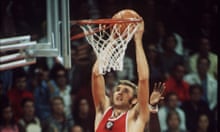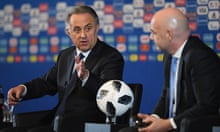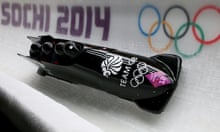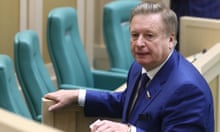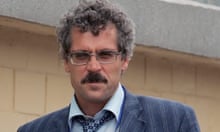Russia’s Olympic Committee has been banned from the Winter Olympics in Pyeongchang and ordered to pay $15m in costs after making what the International Olympic Committee called an “unprecedented attack on the integrity of the Olympic Games and sport”.
Tellingly the IOC also accepted, for the first time, that the Russian state had been involved in widespread institutional doping by banning the then minister of sport, Vitaly Mutko, and his then deputy minister, Yuri Nagornykh, from any participation in all future Olympic Games.
It is the first time the IOC has imposed a ban on a country competing under its own flag for doping. Russia’s athletes were, however, thrown a lifeline by the IOC president, Thomas Bach, who confirmed they would be able to compete in South Korea in February provided they were not involved in a massive state-sponsored doping programme that corrupted the Sochi Winter Olympics in 2014. Such athletes will have to compete under the Olympic flag and in a uniform bearing the name “Olympic athlete from Russia”. If any Russian athlete wins a gold, the Olympic anthem will be played at the medal ceremony.
Mutko, who is now deputy prime minister for sport, tourism and youth policy and the head of the organising committee for the 2018 World Cup in Russia, rejected suggestions there had been systematic doping only last week. Fifa also released a statement on Tuesday insisting Mutko’s ban does not affect planning for next summer’s finals.
The IOC’s decision was announced after its 14-person executive committee spent Tuesday afternoon poring over the final report of the Schmid commission, which has been examining whether there was an “institutional conspiracy” by Russian officials within the ministry of sport to corrupt the London 2012 Olympics and the 2014 Sochi Winter Games.
Schmid’s dramatic conclusion was there had been a “systemic manipulation of the anti-doping system in Russia” and it had come under the authority of the Russian sports ministry.
As Bach put it in a press conference: “The report clearly lays out an unprecedented attack on the integrity of the Olympic Games and sport. As an athlete myself, I am feeling very sorry for all the clean athletes who have suffered from this manipulation.”
There have been suggestions a ban might lead to a Russian boycott of the Winter Olympics. However no such announcement has been made by Vladimir Putin or the Russian Olympic Committee. Nonetheless, many will feel the IOC has not punished Russia enough – and that the IOC has again ducked its responsibilities, just as it did 17 months ago when it decided to allow most of the country’s athletes into the Rio Olympics.
That decision came despite a report in July 2016 from the Canadian law professor Richard McLaren which found Russia’s government, security services and sporting authorities colluded to hide widespread doping across “a vast majority” of winter and summer sports. Some had feared a repeat performance from the IOC, despite a second report by McLaren in December 2016 which confirmed that more than 1,000 Russian athletes had been involved in, or benefited from, state-sponsored doping.
However in the past month there has been a change in tone and language by the IOC and the World Anti-Doping Agency. It started when Wada revealed it had received fresh evidence from a whistleblower that had “reinforced” McLaren’s findings. Separately, the Oswald commission, set up by the IOC to examine Russian doping in Sochi in 2014, began to ban Russian competitors from those Games retrospectively. So far the figure stands at 25 athletes, while 11 have had medals taken away.
The credibility of the Russian whistleblower Grigory Rodchenkov, who ran the Moscow anti-doping laboratory before fleeing last year and revealing what he knew to McLaren, was recently enhanced by the Oswald commission, who confirmed he was a “truthful witness”.
Rodchenkov responded to the news by saying he agreed with the IOC’s decision to allow some Russians into the Pyeongchang Games which begin on 9 February as neutral athletes. However, he said the problem was even bigger than indicated.
Rodchenkov’s lawyer, Jim Walden, said a new database, obtained by Wada last month, showed that “thousands and thousands and thousands” of Russian athletes were implicated in a “secret folder” which outlined all the times samples with performance-enhancing drugs in them had been switched for clean ones.
Added Walden: “It is a roadmap not just to 30 athletes or the 1,000 athletes that McLaren believes, but thousands and thousands were protected by the Russian system.”
In Fifa’s statement, which comes four days after the World Cup draw took place in Moscow, the governing body said it had taken note of the IOC’s decision and “it has no impact on the preparations for the 2018 World Cup”. It added: “Fifa takes its responsibility very seriously and is investigating the allegations made in the McLaren report. In this process, Fifa is working in close collaboration with Wada and has been in contact with Prof McLaren.
“Should there be enough evidence to demonstrate the violation of any anti-doping rules by any athlete, Fifa would impose the appropriate sanction.”
